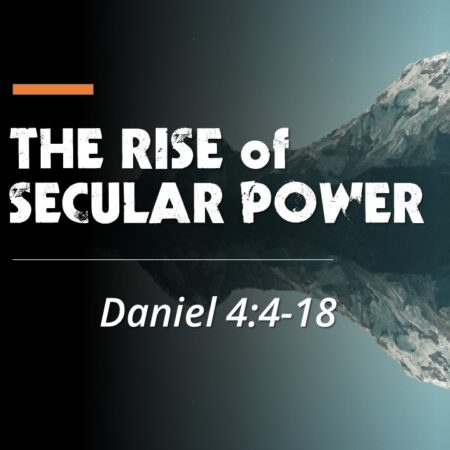“THE STARS OF GOD” are probably symbolic of angels or Elohim
(spiritual beings of the Divine Council over which Yahweh presides)
“MOUNT OF THE CONGREGATION” refers to meeting place of spiritual rulers around God’s throne.
“THE HEIGHTS OF THE CLOUDS” refers to God’s spiritual magnificence, the Shekinah glory.
Dr. Michael Heiser in his book “Supernatural” writes:
“He got a rude awakening. Since the Serpent’s deception led to Adam and Eve’s sin, he was expelled from God’s home and banished to earth – the place where death reigns, where life is not everlasting.
He became lord of the dead, which meant that the great enemy now had claim over all humans since the events in Eden meant the loss of earthly immortality. Humanity would now need to be redeemed to have eternal life with God in a new Eden.”
“The fallout was a series of curses. The curse upon the Serpent included a bit of prophecy. God said Eve’s offspring and that of the Serpent would be at odds. “Then Yahweh God said to the serpent……I will put hostility between you and between the women, and between your offspring and between her offspring” (Genesis 3:14-15 LEB).
Who are Eve’s offspring? Humanity. And who are the Serpent’s offspring? Well, that’s more abstract. The apostle John gives us examples – like the Jewish leaders who hated Jesus. “You are of your father the devil.” Jesus told them (John 8:44). Jesus called his betrayer, Judas, a devil (John 6:70). The serpent’s offspring is anyone who stands against God’s plan, just as he did”.
Carl Teichrib in his book “Game of Gods” writes:
“Humanity has three great desires:
• TO BE AS GOD
• TO BE MASTERS OF MEANING AND DESTINY
• TO BUILD HEAVEN ON EARTH”
This is nothing new: In 1891, Ernest Renan published the book titled: “The Future of Science”
“Science is a religion, science alone will henceforth make the creeds, science alone can solve for men the eternal problems, the solution of which his nature imperatively demands.”
Simon Schama published the book “Citizens: A Chronicle of the French Revolution”
“Christianity, “that infamous thing,” was to vanish in revolutionary fervor. Politicized Christendom would be overthrown by the enlightened masses who, armed with reason guided by passion, were themselves led by men of conviction. Churches were vandalized, mounds of hymn books burned, and “ceremonies of mockery” witnessed priests denouncing their faith. Even the Gregorian calendar was dissolved, with its even-day week replaced by a ten-day cycle dedicated to the veneration of nature. And as each month was structured with an even thirty days, the year would end with an extra five-day block set aside for humanist festivals.”
On November 10, 1793, a Festival of Liberty and Reason was held in the “liberated” Cathedral of Notre Dame. Yale Professor Franklin Baumer in his book “Religion and the Rise of Scepticism”, describes what happened:
“As the Spectators entered the cathedral, they saw, some doubtless with astonishment, the insignia of Christianity covered up and their place taken by the symbols of a strange new religion.
Rising up in the nave was an improvised mountain, at the top of which perched a small Greek temple dedicated “TO PHILOSOPHY” and adorned on both sides by the busts of philosophers.
Halfway down the side of the mountain a torch of TRUTH burned before an altar of REASON. Then ensued a bizarre ceremony which culminated in the emergence from the temple of a beautiful women, an actress of the Paris Opera, dressed in red, with, and blue garments, who personified LIBERTY.
The spectators proceeded to render homage to LIBERTY by stretching out their arms to hear and singing a hymn…….”COME, HOLY LIBERTY, INHABIT THIS TEMPLE, BECOME THE GODDESS OF THE FRENCH PEOPLE.”
Carl Teichrib observes:
“Modernity is an umbrella label for an epoch that witnessed a number of movements and ideas expressing a similar outcome – the humanist progression of society, wherein authentic knowledge and meaning are discovered by NATURALISTIC determination and no Christian revelation. In general, Modernity, often used interchangeably with MODERNISM, upheld humanistic rationalism as the arbitrator of truth. Reason, therefore, proclaimed the goodness of Man over the Christian teaching of original sin, celebrated individual autonomy without moral guilt, worked through industries to harness the beast of nature, and looked to naturalism social guidance. Man became the center of the universe.”
In 1918 Benjamin Kidd, a British social theorist, published his book titled: “The Science of Power”
“Once effectively imposed, this idealism (humans are molded by the social pressure) becomes the expression of the living soul of a people. Its influence cannot be estimated. It subordinates everything. It becomes Power incarnate.
The great secret of the coming age of the world is that civilization rests not on Reason but on Emotion.
It is clearly in evidence that the science of creating and transmitting public opinion under the influence of collective emotion is about to become the principle science of civilization to the mastery of which all governments and all powerful interests will in the future address themselves with every resource at their command.”
"reason" Tagged Sermons
In 1933 a group of 34 liberal humanists in the United States defined the philosophical and religious principles that seemed to them FUNDAMENTAL. They drafted humanist manifesto I which for its time was a radical document. It was concerned with expressing a general religious and philosophical outlook that REJECTED ORTHODOX AND DOGMATIC POSITIONS and provided meaning and direction, unity and purpose to HUMAN LIFE. It was committed to REASON, SCIENCE, AND DEMOCRACY.
HUMANIST MANIFESTO I
“The time has come for widespread recognition of the radical changes in religious beliefs throughout the modern world. The time is past for mere revision of traditional attitudes. Science and economic change have disrupted the old beliefs. Religions around the world labor with the task of coming to terms with new conditions created by a vastly increased knowledge and experience. In every field of human activity, the vital movement is now in the direction of a candid and explicit humanism. In order that religious humanism may be better understood we, the undersigned, desire to make certain affirmations which we believe the facts of our contemporary life demonstrate.”
“Today, man’s larger understanding of the universe, his scientific achievements, and his deeper appreciation of brotherhood, have created a situation which requires a new statement of the means and purposes of religion. Such a vital, fearless, and frank religion capable of furnishing adequate social goals and personal satisfaction my appear to many people as a complete break with the past. While this age does owe a vast debt to traditional religions, it is none the less obvious that any religion that can hope to be a synthesizing and dynamic force for today MUST BE SHAPED FOR THE NEEDS OF THIS AGE. To establish such a religion is a major necessity of the present. It is a responsibility which rests upon this generation. We therefore affirm the following:”
“The humanists are firmly convinced that existing acquisitive and profit-motivated society has shown itself to be inadequate and that a radical change in methods, controls, and motives must be instituted. A socialized and cooperative economic order must be established to the end that the equitable distribution of the means of life be possible. The goal of humanism is a free and universal society in which people voluntarily and intelligently cooperate for the common good. Humanists demand a shared life in a shared world.”
Paul Kurtz and Edwin H. Wilson wrote the preface to the manifesto II:
“As we approach the twenty first century an affirmative and hopeful vision is needed. Faith, commensurate with advancing knowledge, is also necessary. In the choice between despair and hope, humanists respond in this Humanist Manifesto II with a positive declaration for times of uncertainty.
As in 1933, humanists still believe that traditional theism, especially faith in the prayer-hearing God, assumed to love and care for persons, to hear and understand their prayers, and to be able to do something about them, is an UNPROVEN AND OUTMODED FAITH. Salvationism, based on mere affirmation, still appears as harmful, diverting people with false hopes of heaven hereafter; REASONABLE MINDS LOOK TO OTHER MEANS FOR SURVIVAL.”
Among the revised principles of Humanist Manifesto II, you find statements like this:
• “We find insufficient evidence for belief in the existence of the supernatural.”
• “Promises of immortal salvation or fear of eternal damnation are both illusory and harmful.
• “Modern science discredits such historic concepts as the ‘ghost in the machine’ and the ‘separable soul’.”
• Humane societies should evaluate economic systems not by rhetoric or ideology, but by whether or not they increase economic wellbeing for all individuals and groups, minimize poverty and hardship, increase the sum of human satisfaction, and enhance the quality of life.”
It even gets better: Principles 12-17 illustrate humanism’s missionary zeal. It is bent upon the creation of a global society.
“We deplore the division of humankind on nationalist grounds. We have reached a turning point in human history where the best option is to transcend the limits of national sovereignty and to move toward the building of a world community in which all sectors of the human family can participate.
The problems with economic growth and development can no longer be resolved by one nation alone; they are worldwide in scope. It is the moral obligation of the developed nations to provide – through an international authority that safeguards human rights – massive technical, agricultural, medical, and economic assistance, including birth control techniques, to the developing portions of the globe.
World poverty must cease. Hence extreme disproportions in wealth, income, and economic growth should be reduced on a worldwide basis.”


